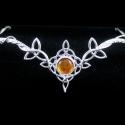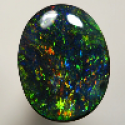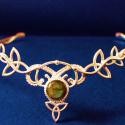-
Anthology
Seliegh
Walk by DayWalk in the light my dear,
To places far and places near.
Step in and out of light by day,
And find yourself far away.
Dancing in the golden sun,
The hearts desire, little one.
Child, child, play in the bright,
Sunlight is your way of flight.
Be mindful as you walk or play,
Of those who walk by night or day.
Unseliegh
Walk by NightWalk in the shadows child,
To places dark and places wild.
Step in and out of dark by night,
Roaming to the hearts delight.
Frolicking in the nightly dark,
The shadows sing, to which you hark.
Child, child, play in shadow,
In gloaming field and darkened meadow.
Be mindful as you walk or play,
Of those who walk by night or day.
Sirene
HomeSeas are home,
In waters run.
Relax or roam,
Enthrall for fun.
Neath playful foam,
Enjoyment won.
Nightly VigilSunken in the coastal deep,
Inglorious vigils nightly keep,
Reviled of men is our plight,
Enthrall of men is our might,
Never our domain to share
Ensnare in pain all who dare
Sidhe
In Fur, In SkinWalk in fur,
Walk in skin.
Fight is fur,
Play in skin.
Clever in fur,
Coy in skin.
Hide in fur,
Run in skin.
Lost in fur,
Found in skin.
Walk in fur,
Walk in skin.
Arias
Little BirdA little bird spoke to me,
Whispered into my ear.
She flew up into yonder tree,
Turned into a maiden dear.
“Would you like to marry me?”
She said with a giggle clear.
“Alas, I cannot trothed be!”
Said I for all to hear.
“For you will have naught to do with me,
When you find out I’m a bear!”
Orlish
Where?What is found and never lost,
Finds it’s way at all cost?
Never steps foot off the way,
By dark of night or light of day?
Always knows to where it’s been,
Whether it goes there or back again?
To and fro, we travel far,
Ne’er forgetting where we are.
Mallan
Little ChildLittle boy,
Little girl,
Abandoned in the wood.
Little boy,
Little girl,
Stepmother is no good.
Little boy,
Little girl,
Stay awhile and play.
Little boy,
Little girl,
Your home is with the fae.
Ilaath:
Day Light, Night BrightDay light,
Night bright,
Shadows in my sleep tonight
Dark dawn,
Dim sun,
Wielded by the Midnight One
Light wild,
Dark mild,
Toys of the Blazing child
A SayingLight is bright in everyone's sight,
When light goes away, dark comes to play -
Glossary
Aan – vast, immense, to horizon
Ani – song, essence
Ath – identity, being, one, individual
Atath – as it should be, in accordance with its nature, (less a specific meaning, more the implication of suitability or rightness), can be implied in preffix at-
Ara – knowledge, knowing
Arta – noble, generic lord or lady
Ane – suffix attached to base word bound/tied to, loyal to, kin to, Originally Fae
Ayh - reference to elder family member, informal, fondAya - female elder within one generation, like a mother, aunt, or close cousinBen – before a family or place name, child of ben Avalon=child of Avalon
Ayu - male elder within one generation, like a father, uncle, or close cousin
Ayta - female elder beyond one generation/elder's elder, like a grandparent or great-aunt (or even further back)
Aytu - male elder beyond one generation/elder's elder, like a grandparent or great-uncle (or even further back)
Besh – no, negation
Besham – peace (shalom)
Da – as a prefix, who does, acts
Dahane – hunter, seeker, pursuer, implies without hesitation or remorse
Dalath – to honor, to respect, perform a righteous deed
Dar – independent: do, act
Dathne(yr) – this (person) is, descriptor, what it does
Del – shield, ward, guard
Delath – sentinel, protector as a formal title: has taken a guarding/sheltering oath
Delahc – an oath of protection such that speaker takes all harm in place of spoken over
Drot – sky, heavens
E – independent: means ‘of’ or ‘from’, Draconic roots referring to Clan
Eckre – come, move, travel
El – as a suffix: acts as first person possessive for previousOften when preceded by a vowel, the vowel is abbreviated and the -el becomes -ilEn – as a suffix: acts as second person possessive for previous
Estu – stop, wait
Ett – as a suffix: acts as third person possessive for previous
Eyr – person
Garan – oath, promise, claim
Hane – to hunt, to seek, to pursue, from Hemane, literally: bound to the hunt, kin or child of the hunt
Heme – a hunt, a quest, a pursuit, occasionally something taken in all seriousness or not put away unfinished
Ioca – sunbloom, a plant whose petals and leaves have healing properties and whose roots can be made into a poison
Kai – a Clan Head, the one ultimately responsible for internal affairs, member of the Fortnight Council
Kal – final or ultimate
Kara – mind, consciousness, house of one’s knowledge/thoughts/beliefs [probably from Kal + Ara = ultimate + knowledge]
Kesh – arctic tundra, bitter/killing cold, dead of winter
Ketush – (sharp ‘sh’), location [Ketushra – where?]
Kuth – craft, artisan work, skill
Kuthrem – crafted, made, (occasionally) unnatural, in specific circumstances 'one who has known no womb’Kuthrem most commonly is used to refer to those who could have been made through pregnancy but were instead made by the Blood in the manner of Purelores. They have no Claim to love, family, or home. This does not mean that it is impossible for them to obtain or maintain, but they cannot force the issue and the interactions of the Lore with regard to Kuthrem is different than to others. Many of the Blood do not see them as fully real people so much as extensions of their crafter’s will. Tiers of ‘Reality’: the Children (humanity, direct link to God), Mixed Bloods (weirdoes straddling the fence), Purelores (creatures as much of imagination as truth), and Kuthrem (made, but unnatural, servants at best)Lathne(yr) – this (person) is, identifier, naming or titling
La – as a prefix, who is, state of being
Lam – as a suffix: indicative of family, connection, bond
Lar – independent: state of being
Lath – honor, respect, righteousness
Ma – to, towards, indicative of target/direction
Mra – as a prefix, highest or sovereign
Mor/Meer/Mear/Muir – power(ful)/water, sea or ocean, can be paired with something else
Nem – little, small, diminutive
Ra – as a suffix: turns previous into question
Rai – and, addition, grouped together [pronounced as rye]
Ri – as a suffix: pluralizes
(Ri)c/(Ri)k – as a suffix: turns noun into adjective; ric pronounced like name Rick if the ck were cut a little short, rik pronounced like reek if the k were cut short; if immediately preceded by a vowel, that vowel moves to the next in cycle i.e. Fairic = Fae+ric or Faic = Fae+c where ai is pronounced like 'eye'.To say something is X-ric is to say 'such-and-so is of/[liked/made/favored by] group X'. Thus to apply to a person is a tremendous insult, for you dismiss their nature and claim to consider them only a thing. Like 'bastard' that insult runs deeper for people whose culture or conditions mean they must take such things seriously. If used against a Vraya/Kai, for example, expect war with their House/Clan for at least a millennium. In contrast, between friends it could be almost fond, though this is rare. Considered borderline acceptable when in reference to Kuthri, however, as (by definition) they have lost/sacrificed a significant amount of their personhood and free will.Sel – boundary, border
Sometimes Fairic/Drakrik is used as a derogative against Blooded by those with enough knowledge to know it as an insult, who hold the Blood in contempt and see not-quite-human as less-than-a-real-person.
Selumi – river, living or moving water, with context wisdom (was Selumuir, or bounded great water)
Shrana – true, deep, strong
Shimre – mercy, compassion, care (pronounced sheem ray)
Telu – heart, core of being, focal point
Thann – suffer, grieve, sorrow (pronounced with a soft a)
Vraya – a House’s Lord/Lady, the one ultimately responsible for internal affairs, member of the Fortnight Council
Yed – Star
Yl – I (pronounced ee-il)
Yn – you (pronounced ee-in)
Ytt – he/she/it (pronounced ee-itt)
Zhi – attack, assault
Phrases (may be phased out as it approaches proper language)
“Kuthrem dahanel.” My crafted hunter. The hunter I made.
“Ketushra teluaniel?” Where is my heartsong/core of soul/truest home?
“Ara yl ketush teluaniel.” I know where my heartsong is.
“Lantheyra deleyrie e Albion?” Are you a guardian of Albion?
“Lathne yl Dahane e Albion.” I am a Hunter of Albion. Not quite a knight, but not joined in apprenticeship either
“Eckre estu.” Literally ‘come stop’; more accurately ‘come here’ or sometimes ‘come to me’, summoning or calling
“Zhi karail matuil, rai thann Yl.” My mind/consciousness attacks my heart/being, and I grieve. The last part can easily be left off. The sentence/saying can refer to sensory overload/panic attack but more often is specific to a grief/shock cycle where you can't process the thing that grieves you, but can't focus on anything else. For those who know the reference see BSOD on TVTropes.
Guidelines
Drake names favor v, k/kh, l, and m
Past/present/future is indicated by moving the first vowel in the given word/prefix/suffix through a cycle, clockwise for later, counterclockwise for earlier
Many words/names can be made or represented by keeping tokens of the base word to prevent unnecessary length. One must be careful, however, not to abbreviate too excessively, to avoid loss of meaning.
A hard “th” can be indicated by “dh” -
Cultural Context
No one truly knows how the Lore came to be, but the most common stories follow a basic pattern:There was an exceedingly evil man who was cursed as punishment. He scoffs at the curse when nothing happens after years of prosperity. Eventually he marries a beautiful foreigner who gives him three sons. But the woman was, in truth, a manifestation of his curse. The eldest of their sons is always described as behaving in whatever manner is draconic at the time the story is told, the second in the manner of the fae, and the third fascinates her by being very human. All are flawed, but only the youngest shows compassion, mercy, love, take your pick. The Curse knows herself physically incapable of these things, and has never seen them in her husband, so she decides it's a human trait. Eventually the man dies, having sowed the seeds of misery and bondage for centuries to come, for once the Curse explains her sons' gifts to them and leaves, one or another of the older brothers ends up killing the youngest, either out of anger for 'wasting' it with his caution or simple greed. In most versions the woman returns to curse her older sons for their folly, so that they transform into unnatural creatures and flee into the wilderness founding the Drakes and Fae, though some claim this was simply the natural progression for their behavior.
Naturally there is a plethora of other versions that are more favorable to the older sons, even going so far as to say that Fae and Drakes were present long before humans and the Man was cursed for intruding on their territory, so that when the humans had been sufficiently punished for their incursions the boys reclaimed their natural forms and returned heroes.
While many of the younger Purelores like the second version, and many young Lorebloods favor the first, the Elders and Wise never hesitate to point out the folly of forcing one's own perspective on the past, especially when one does not have all the facts.
There are even a very few who say that the story was made up whole cloth, and that conflict, while natural between the Peoples, is not automatically original.
Group Toolbar Menu



